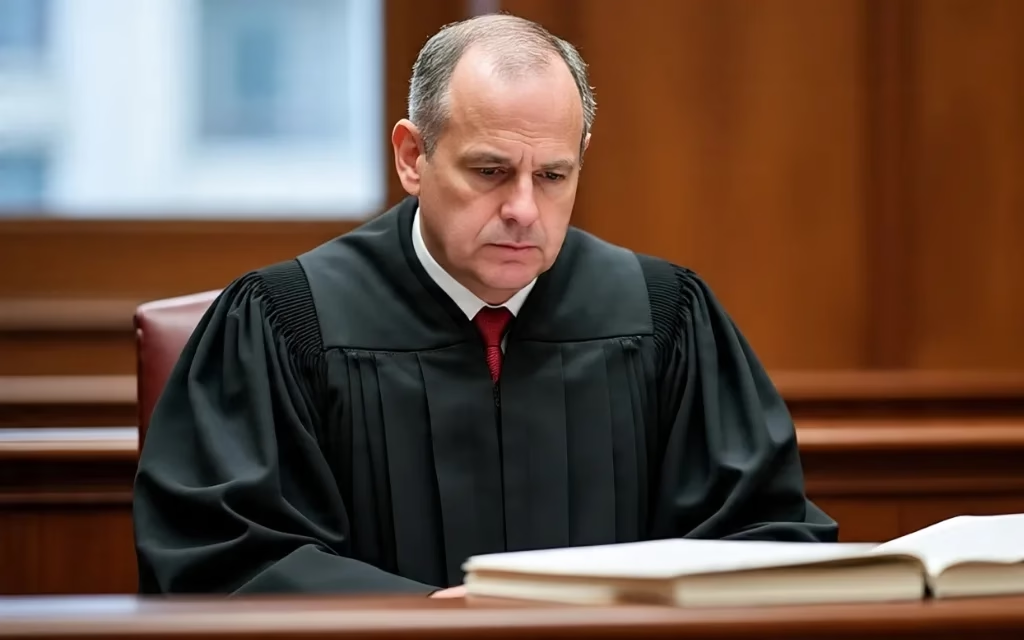Judge James Boasberg
In the complex and ever-evolving legal landscape of the United States, Judge James Boasberg stands out as a significant figure known for his fairness, legal acumen, and commitment to justice. From his early career to his current role in the federal judiciary, Judge James Boasberg has been involved in several high-profile cases that have shaped important aspects of law, governance, and civil rights. This article delves deep into his life, professional journey, and influence within the legal system.
Early Life and Education of Judge James Boasberg
Judge James Boasberg was born in San Francisco, California, and raised with a strong foundation in education and public service. He pursued his undergraduate studies at Yale University, where he excelled academically and participated in extracurricular activities that sparked his interest in public affairs and law. Later, he earned his Juris Doctor degree from Yale Law School, one of the most prestigious legal institutions in the United States.
His academic background played a vital role in shaping the analytical skills and legal knowledge that would later define his career on the bench. The rigorous education at Yale exposed him to constitutional law, administrative law, and public interest litigation—all of which would become relevant in his judicial career.
Entry into Legal Practice
Before becoming a judge, Judge James Boasberg began his career as a lawyer in private practice and later served as a federal prosecutor. He worked at the U.S. Attorney’s Office for the District of Columbia, where he developed a reputation for being both tough and fair. As an Assistant U.S. Attorney, he handled a variety of criminal cases and became known for his attention to detail and ethical approach to prosecution.
This experience equipped Judge James Boasberg with the real-world understanding of both criminal and civil cases, a balance that would later benefit him immensely as he transitioned into a judicial role.
Appointment to the D.C. Superior Court
In 2002, Judge James Boasberg was appointed by President George W. Bush to serve on the Superior Court of the District of Columbia. During his time there, he handled numerous cases ranging from family law to criminal proceedings. His balanced and thoughtful rulings helped him gain the respect of his peers and the legal community.
His work at the D.C. Superior Court was marked by a dedication to justice, ensuring that both defendants and victims were treated fairly. Many attorneys who appeared before Judge James Boasberg noted his ability to listen attentively and rule impartially, based on law rather than emotion.
Transition to the Federal Bench
In 2011, Judge James Boasberg was nominated by President Barack Obama to the United States District Court for the District of Columbia. After being confirmed by the Senate, he took on a federal judgeship that would bring him into the national spotlight.
As a U.S. District Judge, Judge James Boasberg has presided over several critical and politically sensitive cases. His courtroom has seen disputes involving surveillance programs, immigration policies, government transparency, and civil liberties.
Key Rulings by Judge James Boasberg
One of the reasons Judge James Boasberg is widely known is due to his involvement in significant legal decisions that impact American policy and constitutional rights. Some of his most notable rulings include:
1. FISA Court and Government Surveillance
Judge James Boasberg was appointed to the Foreign Intelligence Surveillance Court (FISC), which oversees requests for surveillance warrants against foreign spies inside the United States. Eventually, he became the Presiding Judge of this secretive but crucial court.
In this role, Judge James Boasberg addressed concerns related to the government’s use of surveillance tools. His decisions reflected a careful balance between national security and individual privacy rights. He required greater transparency and accountability from intelligence agencies while maintaining the integrity of national security interests.
2. Immigration and Human Rights
In cases concerning immigration enforcement and asylum policies, Judge James Boasberg ruled in favor of preserving legal protections for migrants. He blocked administrative actions that violated existing asylum laws and emphasized the importance of fair treatment for individuals fleeing persecution.
3. Pipeline and Environmental Decisions
Another landmark decision by Judge James Boasberg involved the Dakota Access Pipeline. In 2020, he ordered the pipeline to shut down temporarily due to environmental concerns. He ruled that the U.S. Army Corps of Engineers had not adequately studied the environmental impact, a decision hailed by environmental advocates.
Role as Chief Judge of the D.C. District Court
In March 2023, Judge James Boasberg became the Chief Judge of the U.S. District Court for the District of Columbia. This role not only involves overseeing important cases but also managing the administrative functions of the court.
As Chief Judge, Judge James Boasberg has prioritized transparency, efficiency, and judicial integrity. His leadership has guided the court through complex issues, including politically charged cases and the handling of legal proceedings related to the January 6 Capitol riot investigations.
Legal Philosophy and Approach
The decisions made by Judge James Boasberg reflect a centrist, balanced judicial philosophy. He is not seen as ideologically extreme and often rules in ways that respect both government authority and individual rights. His approach is characterized by:
- A strong adherence to constitutional principles
- A belief in the importance of judicial independence
- An emphasis on fair process and due diligence
Many legal experts describe Judge James Boasberg as someone who respects the boundaries of his role, refraining from activism while still holding government actions accountable when necessary.
Influence on National and Judicial Policy
The influence of Judge James Boasberg extends beyond individual cases. Through his work on the FISA Court, immigration rulings, and environmental law decisions, he has helped shape national policy in meaningful ways. His opinions are frequently cited in legal discussions and scholarly analysis, especially regarding civil liberties and administrative law.
Law schools and legal institutions often study the rulings of Judge James Boasberg as examples of how judges can maintain neutrality and uphold the Constitution in highly polarized times.
Media Attention and Public Recognition
While Judge James Boasberg typically avoids the media spotlight, his role in high-profile cases has attracted attention from journalists and the public. Legal commentators often praise his clear, well-reasoned decisions and his ability to maintain judicial decorum under pressure.
Despite the sensitive nature of many of his cases, Judge James Boasberg has maintained a low public profile, preferring to let his written opinions speak for themselves. This restraint further underscores his professionalism and dedication to the rule of law.
Challenges and Criticism
Like any public figure, Judge James Boasberg has not been without criticism. Some political groups have disagreed with his rulings, particularly when they impact contentious issues such as immigration policy or surveillance. However, his decisions are consistently grounded in legal reasoning and supported by precedent.
His critics often come from both ends of the political spectrum, which some legal analysts interpret as a sign of true impartiality.
Legacy and Future Contributions
As of now, Judge James Boasberg continues to serve on the federal bench, with many expecting him to have an even greater impact in the coming years. His tenure as Chief Judge will likely shape how the D.C. District Court handles some of the most pressing legal challenges of our time.
Law students, legal scholars, and aspiring judges look to Judge James Boasberg as a role model for judicial integrity and fairness. His ability to navigate complex legal terrain with precision and impartiality ensures that his legacy will endure well beyond his years on the bench.
Conclusion
Judge James Boasberg represents the best of what the American judicial system has to offer. With a career grounded in ethics, fairness, and a deep understanding of the law, he continues to play a crucial role in maintaining justice and protecting constitutional rights. His contributions to national security law, immigration, environmental justice, and government transparency reflect a commitment to both the letter and the spirit of the law.
As challenges to the rule of law become more complex, figures like Judge James Boasberg remain essential in upholding the foundations of democracy. His legacy serves as a powerful reminder of the importance of judicial independence and the pursuit of justice for all.




